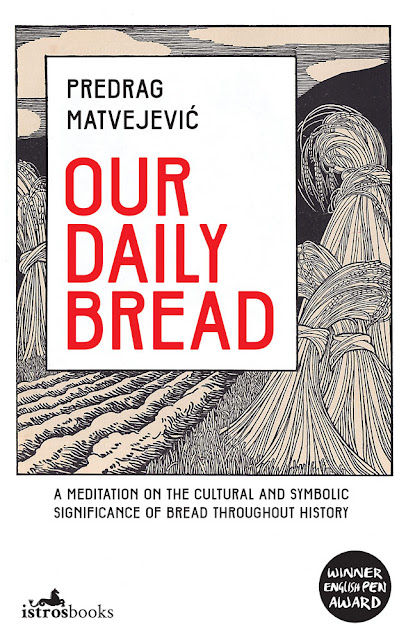by Nabarun Bhattacharya
Friday, December 10, 2021
Coming Soon...
Of the Forest
by Bibhutibhushan Bandyopadhyay
Coming Soon...
by Abul Bashar
Saturday, November 27, 2021
Thursday, November 25, 2021
Coming Soon...
by Oksana Zabuzhko
Sunday, November 7, 2021
Wednesday, October 20, 2021
Coming Soon...
an odyssey to Europe
by Ibrahima Balde and Amets Arzallus Antia
Saturday, September 4, 2021
Coming Soon...
BY TOVE JANSSON
Sunday, August 8, 2021
Friday, July 2, 2021
Sunday, June 6, 2021
Coming Soon...
by Alexei Remizov
Monday, May 3, 2021
Sunday is Gloomy...
The narrator begins by recounting a Sunday visit to her elder sister Claire Marie at her residence in a Parisian suburb Ville-d'Avray. There her sister lives with her physician husband Christian and their daughter Mélanie. As the narration progresses, she remembers episodes from her childhood with her sister, spent in Brussels, suffused with dreams, longings, horrors, and their fancy and fondness—some of the childhood traits have found their way into their adult lives as well—for television or novel's character.
She characterizes her sister and
her oddities, and is frank to share the discomfort she and her husband feel
sometimes with her sister, and she is also well aware about the malaise Claire
Marie feels because of them, which is often visible in her gesture and other
ways. We find a psychological tension in this sisterly relation though
everything seems fine between them; they have a sisterly resentment towards
each other. Like a chorus to a beautiful but sad and gloomy song; here referral
to Sunday2 comes often, which is a day deeply rooted to
the sister's childhood memories, and which sets a perfect tone to the story. Through
the narrator's observation1, the author has perfectly captured the
mood, the silence, the seasonal transition, the stillness… like that of a
perfectly composed art, of Parisian suburb; of Ville-d'Avray.
1. AND SO I WAS FULL OF MEMORIES, I was in the melancholy state of mind that often comes over me when I go to see my sister, and I think I started by getting a little lost in Ville-d’Avray, by driving through the provincial, peaceful streets of my sister’s neighborhood, past private homes with their gleaming bay windows, their porches, their phony airs (Art Deco villa, Norman country house), their gardens planted with rosebushes and cedars.
2.On Sundays—don’t you think?—certain things come back to you more than on other days.”… she said, “On Sundays, you think about life.”
In their quiet conversation in the dusk, soon Claire Marie opts to tell the narrator about an episode in her life, when she'd an inexplicable relationship many years ago with a strange man named Marc Hermann—whom as a patient she'd met first time in her husband's clinic. In her confession, Claire Marie points that what started as an ordinary chance encounter, a way out to her routine life, soon became a mindless3 continuation, and ceased to become romantic and turned to a horrific compulsion she wanted to escape. The story continues, perfused with narrator's insight into her relation with her sister, all portrayed in the gripping ambience, with Claire Marie's description to what happened to the fate of the relation and the unshared horror it brought to her life.
As per
the narrator, Claire Marie is a sensitive human being, easy to be a prey of
mind games and tragic/romantic stories—which she collected from Marc Hermann's
story of his Hungarian past. The narrator too is influenced by her sister, the
way she feels the internal disquiet4 and dissatisfaction
as if transferred from her sister. Something from the past influences them,
something about the present unsettles5 them.
3. Life’s like that: you make a valiant effort
to carry your dreams, yours or those of others.
4. That was why I resented my sister. That’s
what’s so irritating about her. She rattles you.
5. It was a remnant of childhood, I knew it.
Our life with Rochester—my sister’s and mine—isn’t acceptable to anyone; our
childhood isn’t acceptable to anyone. It weighs on us. But we can’t manage to
get rid of it. It makes us exiles. I’ve tried to conceal it, I try to bluff. I
try to appear liberated and modern (not an easy goal to accomplish, you have to
admit, given the heavy burden of our upbringing on my sister and me). I’ve
tried with all my strength to adjust.
The animated6 description of the stillness of the landscape in the narration is as such everything takes on life: the houses, the forest, the pond, the train stations… even the suspenseful rumors that circulate in the suburb about a strange man roaming in the locality. In this recollection, we find a subtle psychological horror, a sisterly care7 and bond, strangeness of human emotion, imagined influences, a sensitive soul, a haunting echo of the childhood, nerves of loneliness, need for happiness and love… we are uplifted when things settle in the end. A Sunday in Ville-d’Avray fills us with hundreds of images to remember!
6. A damp autumn set in. You have to know what autumn’s like in Ville-d’Avray. October. November. In the hundreds of terraced gardens that rose in tiers up the slopes of the hills, the plants were turning brown, the trees were shedding their leaves. The rain started in the morning, stopped around noon, and resumed toward evening. The neighborhood seemed dead, the gardens perpetually darkened by the showers; the slate roofs glistened; the sodden leaves macerated in heaps. As soon as night fell, the wet asphalt reflected extensive yellow crowns of yet unfallen leaves. The same ruined, melancholy prospect was reproduced on every street, one by one. People went out less.
7.
I
could practically see my sister strolling with her stranger in a setting
composed of reflections, of beautiful trees, of leaves speckled with tiny
light-colored patches, like eye floaters, as if the blurriness of dreams
interposed itself between the image and the beholder (which is always the case
with Corot)… I felt anger toward that man. Because he took advantage of the
situation; because he understood nothing about my sister.
Author: Dominique Barbéris
Translator: John Cullen
Publisher: Other Press
Author's Photo Source: Maurice Rougemont
Review Copy Courtesy: Other Press
A Dive That’s Deep, A Water That’s Translucent (Guest Book Review by Kabir Deb)
We are familiar with how power, patriarchy and possession redefine themselves every day to stay relevant. But sometimes, society becomes int...

-
First Published in 1994, only few years after the civil war ended in Mozambique Rain and Other Stories is a collection of 26 short storie...
-
Set in an unnamed Brazilian city and told through multiple narrators, Eliana Alvez Cruz 's Solitaria is a novel about the modern-day ...
-
It's been a while since Monotosh, the narrator of The Ruffian , moved out of the city in which he grew up. He has arrived at his old nei...





















































